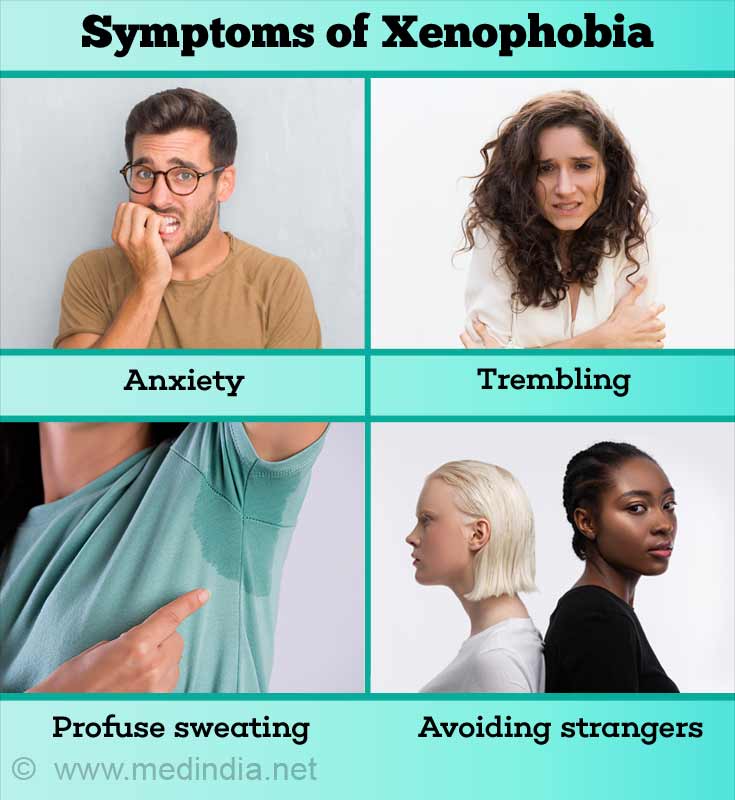Symptoms and Diagnosis
Xenophobia is a feeling of extreme fear and apprehension, experienced on meeting a stranger or a foreigner. It is characterized by a morbid fear or intense dislike of strangers, foreigners or any subject perceived as alien. In most cases, it is caused by an intense, but negative, past experience. Sometimes though, there may be no apparent causality that can be established for the fear.
An individual suffering from xenophobia perceives the unknown or unfamiliar external element as a potential threat. This feeling is impulsive, exaggerated, and mostly baseless. People suffering from this genuinely believe the ‘different’ other can, in some way, hurt or harm them. This might trigger a violent response in the xenophobic person, resulting in a physical or verbal attack on the stranger. Sometimes though, the xenophobic individual prefers to withdraw to safer places from such volatile situations. Meeting and interacting with new people will no doubt become a nauseating experience.
Xenophobic anxiety is more common in individuals with greater tendency towards fear and anxiety and those who suffer from adrenal insufficiency.
Medically xenophobia can be part of Post-traumatic Stress Disorder (PTSD) if it happens due to terrorist attack or after genocide of a race or similar emotional trauma and can be categorized as an adjustment disorder.

Xenophobia may elicit symptoms similar to other phobias, including -
- Anxiety
- Increased breathing (tachypnoea)
- Quickened heart rate (tachycardia)
- Shortness of breath
- Panic attacks
- Nausea
- Trembling
- Profuse sweating.
Social anxiety disorder or social phobia may also result; such as withdrawing even from the least intimidating of social situations.
Symptoms of xenophobia can be observed when the individual goes to extreme lengths to avoid interacting with strangers, an irrational or unexplained fear affects their day to day life and activities, or (in adults) when the person him/herself realizes that their fear is not in keeping with reality, but at the same time, is helpless to control it. At this stage, it is important to seek professional intervention and diagnosis must conform to prescribed list of symptoms, along with clinical skills and sound judgment on the part of the physician. The tricky part of the diagnosis is that symptoms of phobias are very similar to those of other mental, and even physical, illnesses.
In several cases though, it is possible that the condition goes undiagnosed as the individual may learn to avoid situations which cause anxiety or give excuses to distract attention from his/her unusual behavior.










